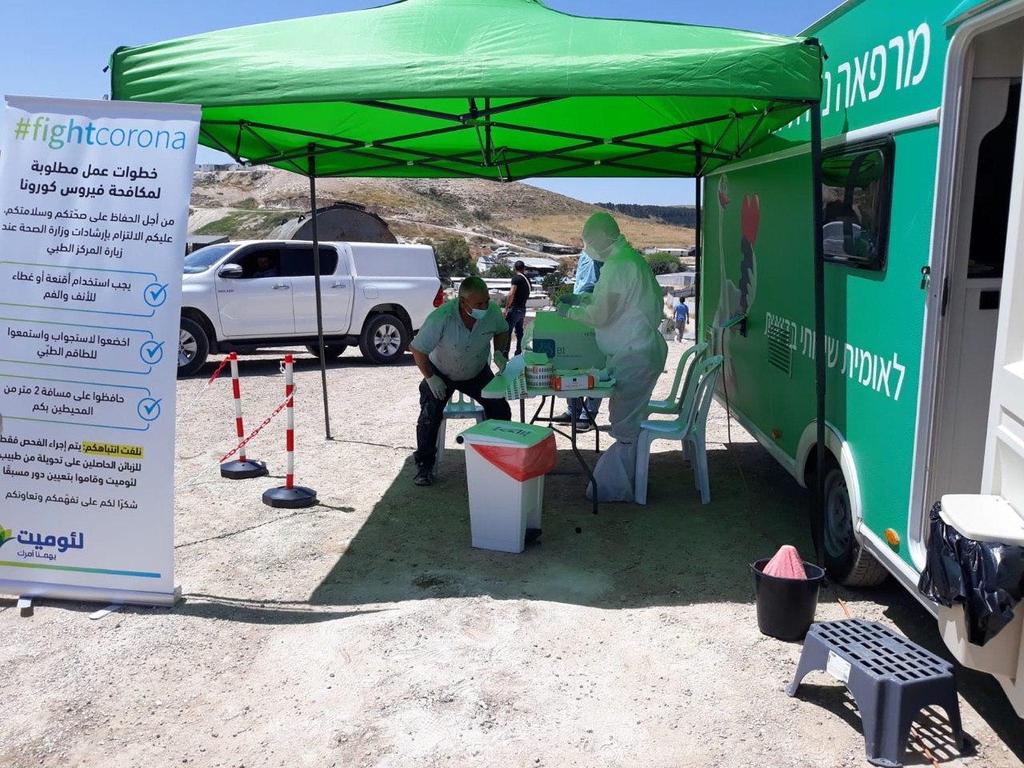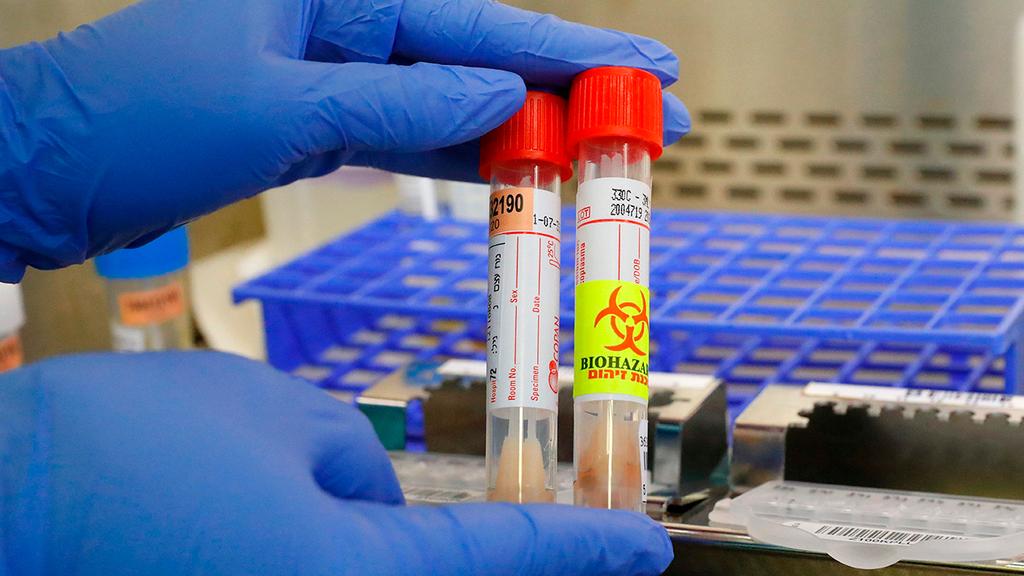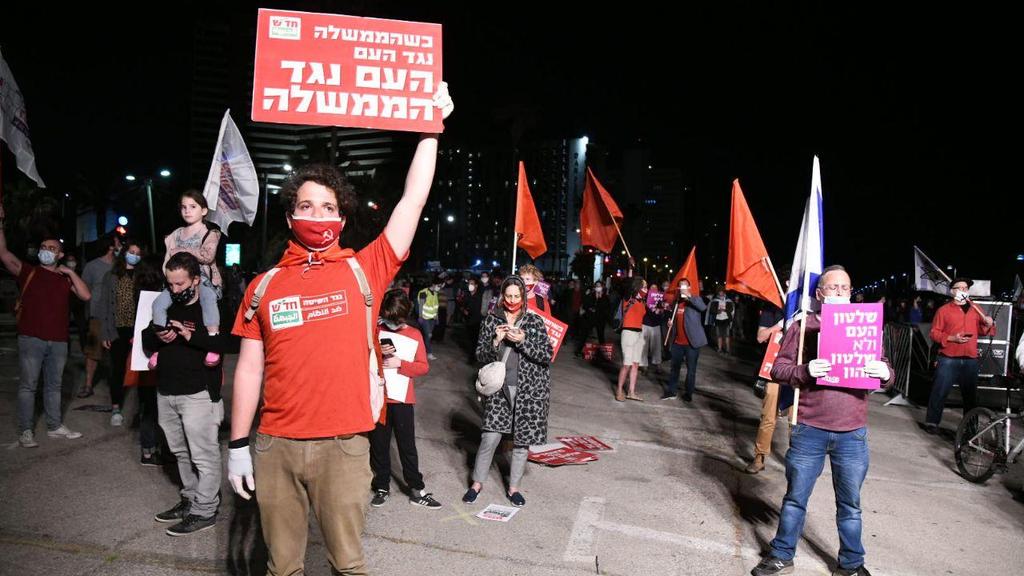Getting your Trinity Audio player ready...
The government's celebration over the “defeat” of the coronavirus, accompanied by the media’s amity, created the impression that we managed the coronavirus crisis successfully, and as evidence, see the low number of fatalities in Israel compared to countries such as the United Kingdom, Italy and the U.S.
Of course, one could make the case that the longer a country went about its normal routine (the exact opposite of isolation), the greater the increase in the rate of infection.
5 View gallery


Moshe Bar-Siman-Tov and Yaakov Litzman, the Health Ministry director-general and health minister during the coronavirus crisis
(Photo: Shalev Shalom)
That being said, the right question to ask is where the balance lies.
Presenting the situation in such a binary manner assumes that all other variables are constant, and that the management of the crisis has been incredibly effective. This is fundamentally wrong.
My argument is that both results could have been achieved - both a lower death toll and far more normal routine - resulting in far less harm to the economy.
Achieving said results would have been possible if not for the foolish insistence on sticking to a concept that led to dozens of failures.
Let us examine four of these failures.
1. While there are about 30 laboratories in Israel that could have tested for coronavirus, the Health Ministry insisted on using just one for half of the duration of the crisis, and later conscript the aid of only a handful more hospital laboratories.
2. Despite the fact that Israeli hospitals have the most advanced information systems in the world, capable of giving tens of thousands of people an response to blood tests within 60 seconds, the Health Ministry refused to use them for two-thirds of the crisis, instead opting to create from scratch a new system that was under its exclusive control.
As a result, those undergoing tests had to wait for about five days for the results, instead of receiving an immediate answer. During this time, they were able to infect other people, who in turn spread the infection further.
3. The Ministry of Health insisted for half of the period of the crisis that no intelligence gathering was necessary, that the entire state was comprised of one area only, and that the age of patients was irrelevant.
There was an insistence on counting how many people were infected instead of asking who they were.
Things changed only when members of the IDF’s 8200 Intelligence Unit and the Shin Bet security service pushed for the use of simple information gathering capabilities, and the acknowledgement of the critical difference between regions and age groups.
This is the reason why nursing homes received no special treatment - there was a fixation that “everybody is equal.”
4. The State of Israel has invested billions in its defense system, on its procurement mechanisms, development capabilities and Home Front Command capabilities. But utilization of these three assets in fighting the pandemic only began mid March - two months after it was clear what was happening.
Furthermore, it has been clear since 2006 that the most effective way to understand what is happening among our diverse population and respond accordingly is to make advantage of the synergy between the Home Front Command and the various municipalities.
Again, the Ministry of Health resisted providing information to municipalities and delegating the necessary authority to them.
5 View gallery


Tourism sector professionals protest against the government response to the damage to their industry during the crisis
(Photo: Amit Shabi)
The ministry’s fundamentally wrong approach was based on three assumptions: Firstly that the crisis was strictly a medical challenge, while in reality it a national emergency.
Secondly, that the crisis could be managed centrally but without centralized mechanisms to do so.
Thirdly, that only isolation was important, not the tests, not intelligence gathering, not samples taken from the population and not the implementation of other measures.
As a result of this wrongheaded approach, Israel is now entering the biggest economic crisis in its history with a projected 6% decline in GDP this year. An event of this scale has not transpired in the 72 years since the state was created and will exact a huge price in every aspect of life, including health.
5 View gallery


A pop-up coronavirus test site next the Bedouin town of Hura
(צילום: דוברות קופת חולים לאומית)
And for those still wishing to compare us to other countries on the most important measure of all, deaths per million citizens, should realize that Israel ranks only 168th out of 215 nations. That is hardly a source of pride.
When investigating an event, listing the actual mistakes is far less crucial than understanding how they came about in the first place.
Because if we don’t understand what was wrong with our grasp of the situation in the first place, we will never be able to fix what we must in order to prevent a future national emergency - be it epidemic, cyber attack or earthquake.



